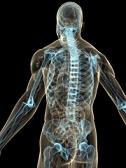Advertisment
No differences appear between paracetamol and placebo for lower back pain

by Bruce Sylvester – Researchers from first large randomized trial comparing paracetamol with placebo for lower back pain report that paracetamol did not excel placebo at hastening recovery from acute episodes of lower back pain, improving pain levels, function, sleep or quality of life.
The findings appeared on July 23, 2014 in The Lancet.
As background, the authors noted that guidelines worldwide recommend paracetamol as the first choice treatment for acute low-back pain, even though no prior studies have shown conclusively that it is effective for the condition.
In the Paracetamol for Low-Back Pain Study (PACE), the investigators randomized 1652 Australian subjects (average age 45 years) with acute lower back pain to up to 4 weeks of paracetamol in regular doses (three times a day; equivalent to 3990 mg per day), paracetamol as needed (maximum 4000 mg per day) or placebo.
All subjects received supportive counseling and follow-up for 3 months.
The researchers found no differences in days-to-recovery between the treatment groups. Median recovery time was 17 days in the regular paracetamol group, 17 days in the as-needed paracetamol group, and 16 days in the placebo group.
Notably, paracetamol also had no distinctive therapeutic effect on short-term pain levels, disability, function, sleep quality, or quality of life.
The incidence of adverse events was similar in all groups.
“Simple analgesics such as paracetamol might not be of primary importance in the management of acute lower back pain”, said lead author Christopher Williams, Ph.D, of the George Institute for Global Health at the University of Sydney in Australia. “The results suggest we need to reconsider the universal recommendation to provide paracetamol as a first-line treatment for low-back pain, although understanding why paracetamol works for other pain states but not low-back pain would help direct future treatments.”
He added, “In view of the quick timeframe in which participants in our trial improved compared with other cohorts, it would be interesting to see whether advice and reassurance (as provided in our trial) might be a more effective than pharmacological strategies for acute episodes of low-back pain.”





